Take off those ghastly hats worn at the Women’s March. Put down the signs that declare our taxes ought to pay for someone else’s birth control, and cut it out that killing an unborn child is a woman’s right.
Excuse me, but I find it all so petulant and immoral.
Instead, take a step back and look at what mothers, and women in general, were doing when the issues were real. You know, like taking care of children, taking care of their families and, when life allowed, taking the message out to mothers and others by opening medical schools.
Here are a few mothers who knew what was important, took charge, and did it. They are the pioneers of homeopathy who enabled us.
And what do you know. They didn’t whine or need the odious third wave of feminism to do it!
Here’s what was happening a century or so ago:
When allopathic doctors were offering barbaric treatments such as bloodletting, leeches, mercury, and morphine, women went looking for safer, gentler methods. They were drawn to homeopathy not only because of its effectiveness but also because it considered the emotional and mental concerns of a person when selecting the correct remedy.
Their male homeopathic counterparts were, of course, drawn to homeopathy for the same reasons. But mothers then, just as today, needed real answers that were safe and effective for their families’ health conditions.
To honor a few true heroes on Mother’s Day, here are some of the stand-out women of homeopathy:
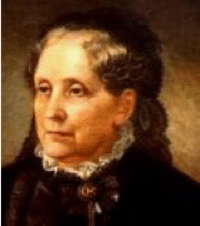 Dr. Mercy Jackson (1802-1877)
Dr. Mercy Jackson (1802-1877)
Dr. Jackson gave birth to 11 children and became a mother to four more. As a girl, she had dreamed of a career in the medical field. However, opportunities for women during the early 1800s were limited to being a nurse or midwife. By her mid-50s, Jackson had lost two husbands and several of her 15 children to illness and disease, which thus sparked her to return to her dream of receiving a formal education in medicine. She received her Doctor of Medicine at the age of 58. Her success with homeopathic treatments is legendary, most notably in her specialization of Obstetrics and Gynecology. In fact, next week, we will discuss one of her amazing remedies for childbirth in depth. Stay tuned!
Dr. Clemence Sophia Harned Lozier (1813-1888)
Dr. Harned Lozier opened the first homeopathic medical school for women in 1863 — the New York Medical College and Hospital for Women. Hers was the first hospital to offer a course in hygiene and preventative medicine. She felt that “woman was, by every instinct and aptitude of her nature, better fitted for the medical profession than man.” Kinda describes how I (and probably you, too) feel about mothers being in charge of their family’s health care.
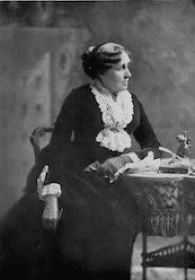
Louisa May Alcott (1832-1888)
Yes, that Louisa May Alcott, the author of the beloved novel Little Women. She was an advocate for homeopathy. If you haven’t read it recently, you might enjoy the homeopathic references you may have missed when you read it the first time around. The character Jo treats the character Beth’s scarlet fever with Belladonna.
She also treats her own headache with Arsenicum and an ankle injury with Arnica. In her later novel, “Jo’s Boys,” Nan, the main character, becomes a homeopathic physician! For historical reference, you might be interested in knowing that educated women of the last two centuries were noted for using homeopathy.
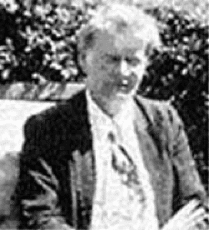 Dr. Dorothy Shepherd (1885-1952)
Dr. Dorothy Shepherd (1885-1952)
Dr. Shepherd was a British medical doctor who used conventional methods until she learned of homeopathy. In fact, she wrote several books that provide insight into her frustration with allopathic medicine and the solutions she found in homeopathy. She then instructed her staff in homeopathic protocols, especially for trauma and emergencies. She was known for recommending Calendula instead of conventional antiseptics. We now know that this remedy speeds healing controls bleeding and soothes pain, as well as performing as an antiseptic. Her advice holds true today. If you experience a cut, scrape, skin irritation or minor burn, don’t head to the drugstore for a synthetic antiseptic. Keep Calendula Cream on hand. When your injury heals, remember to tip your hat to Dr. Dorothy Shepherd. Read her books. I’ve read them all at least three times and suggest you do the same. Many of her books are available on Amazon.
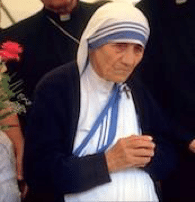 Mother Teresa (1910-1997)
Mother Teresa (1910-1997)
Among her many accomplishments, Mother Teresa used homeopathy to treat the poor in India. That's what she was doing in Calcutta. She opened her first homeopathic medical dispensary in Calcutta in 1950, and her order, the Missionaries of Charity, still stand today continuing their missionary work.
These women contributed publicly and historically to advancing their own charities and the homeopathic movement, and they deserve our praise and respect.
Despite how busy you are, you continue to study, to learn, and to share your knowledge of homeopathy with others. YOU continue to treat your family, standing up to the pressures of conventional medicine and Big Pharmaceuticals. YOU are carrying the torch of the great women who came before you … continuing to use homeopathy to make life better for yourself and those around you.
On this Mother’s Day, recall your homeopathic achievements.
And I can’t let Mother’s Day pass without giving you a little gift. Allow me to introduce a new feature that I plan to include with each new blog post: Homeopathic Remedy Cards.
Just like kitchen recipe cards are at-the-ready when you need to pull out an appetizer for a surprise guest, so too, will your remedy cards be ready for reference when a surprise illness or injury stops by.
Enter your name and email below to download your FREE remedy card containing this week’s featured remedy: Calendula
Attributions:
Photo of Dr. Mercy Jackson: By Jane Port, curator (Pilgrim Hall Museum) [CC BY-SA 4.0 (http://creativecommons.org/licenses/by-sa/4.0)], via Wikimedia Commons
Photo of Dr. Clemence Sophia Harned Lozier: Ida Husted Harper, Public domain, via Wikimedia Commons
Photo of Dr. Dorothy Shepherd: http://www.homeorizon.com/images/user-files/homeopaths/shephered.jpg
Photo of Mother Teresa: By © 1986 Túrelio (via Wikimedia-Commons), 1986 /, CC BY-SA 2.0 de, https://commons.wikimedia.org/w/index.php?curid=2247034


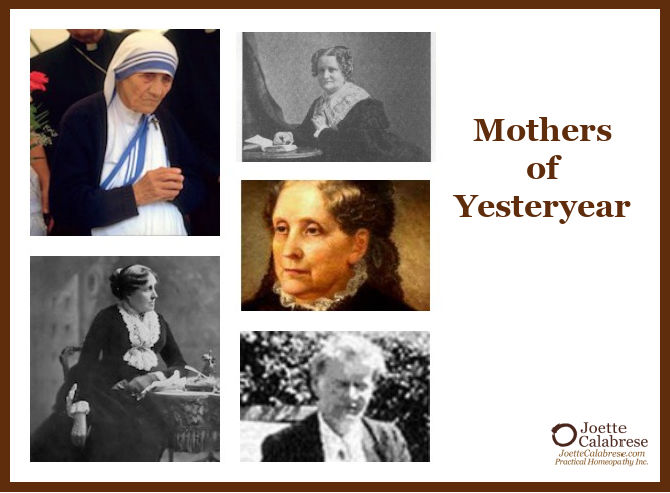
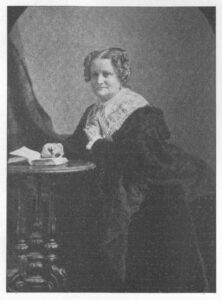

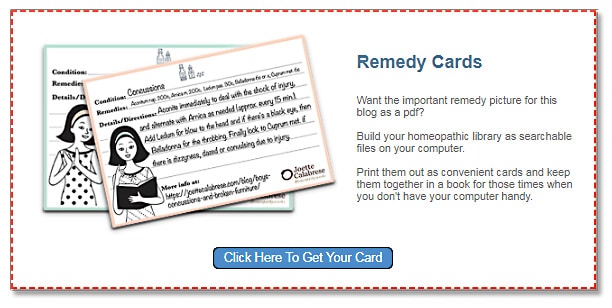

Happy Mother’s Day, Joette! You have empowered me so much as a mother – I’m forever grateful! (And my 4 kids are, too!) Thank you for proclaiming what true sacrificial love is. I love seeing people stand up for truth and common sense which is so lacking these days. Have the best day!
Thank you, Joette, for pointing out what I THOUGHT would be obvious! And a Happy Mother’s Day to you. God bless you for the work you do to help moms keep our families healthy!
Thanks Joette. Good idea for organizing remedies! This particular card addresses Calendula for external use, correct?
Correct 🙂
I love this post. Thank you for posting this and for all the things you do. I am enjoying learning more about and using homeopathy and have recommended you to several people…….
Thanks for this wonderful post! I really enjoyed reading about these women. So much better than silly hats. Some of the names were familiar to me, although I didn’t know they had any connection to homeopathy, and some I hadn’t heard of before. It makes me want to reread Little Women.
Terrific.
Dr. Mercy! What a love! A total inspiration to continue learning as I look into my upcoming 50’s. Thank you as always for your encouragements, Joette!
Joette, I love you even more after reading the first paragraph of this article! I agree with you wholeheartedly. Very inspirational article. I hadn’t heard of some of those great women and am now curious to read more about them. Thank you, and Happy Mother’s Day!
God Bless you Joette for posting this article. I just love you more and more. The strong, courageous, intelligent women you profiled are truly an inspiration for us all….as are you. Thank you so much.
You just endeared yourself to me even more with this post! Also, I love the idea of this organizational system. I’m newish to homeopathy and a compulsive organizer, so this system spoke to me!
Joette, Thank you for boldly standing up for the sanctity of life! (Not to leave out a big thank-you for all your work and valuable info that you share on this site.) God bless.
Hi Joette, the article on women and homeopathy is inspiring, however I was puzzled by the relevance of comments about ugly hats, birth control and abortion. Here is the article I read from afar (Australia) and some of us were inspired about so many women collectively gathering in the streets. https://news.artnet.com/art-world/pussyhats-womens-march-art-829571. The article includes the origin of the hat idea as a response to the red hats pictured. These moral issues are sensitive and delicate and as a homeopathic practitioner and psychotherapist working with women who have been raped and sexually abused, there are some women whose children are the product of these abuses and some who are unable to become mothers due to the physical damage to their bodies. I have learned a lot about broad generalisations through up close client work and value the contribution that women make.
Thank you, Deidre, this was eloquently put. I value treating people who have a difference of opinion with respect and love. The nuance and compassion that was missing from this post is upsetting and surprising. I love the effectiveness of homeopathy and Joette, the information that you share is usually so helpful.
My compassion lies with the unborn baby.
Amen! And half of these babies are female. To be in favor of women’s rights is to allow these baby girls to be born.
And we LOVE you for standing up for those who cannot stand up for themselves. People who are interested in healing and helping family members and others should not be advocating murder in the womb. Thank you Joette.
Thank you Joette. You’re courage is inspiring to stand up for what is right regardless of what others think is refreshing in this day and age. May God bless you always.
And not at all wiyh the mother to be!
Not so! Being pro-life, pro-baby, pro-child is also pro-mother! Mothers who have abortions have an increased likelihood of problems, both mental and physical, from their abortions. This reality is very well documented in research. Adoption is always an option!
My compassion lies with all human beings.
Starting first with the tiny, defenseless child in the womb!
Great post, Joette! Love the “recipe” card idea. Happy Mother’s Day!
I love this post, Joette! Thanks for standing up for truth and the sanctity of life. You and those ladies are an inspiration to me. Happy Mother’s Day!
Thank you for this post!!! I appreciate it greatly! All of it.
Joette,
I have learned a lot reading your emails. I was saddened by your last post. I think you misunderstood the women’s march.
“Instead, take a step back and look at what mothers, and women in general, were doing when the issues were real. You know, like taking care of children, taking care of their families and, when life allowed, taking the message out to mothers and others by opening medical schools.” This quote sounds like mother’s who marched don’t take care of their children. And I’m confused about “when the issues were real”. We still live in a culture where rape happens. Women don’t receive equal pay. The issues are still real. I also can respect your opinion about abortion, but you don’t get to choose what happens to my body. If you are not willing to allow women to choose to have an abortion, are you willing to step up and support government programs to help feed these children? I have a lot of respect for your medical opinions, and I am confident I will be met with a lot of dissent here. Please know I respect each woman who is trying to do what is right for herself and her family. We are all entitled to our beliefs, but please don’t expect your beliefs to be right for all. Ignoring the need for action on behalf of women and trivializing current causes helps none of US. with gratitude for you taking the time to share your knowledge of Homeopathy, Happy Mothers Day.
I appreciate your opinion put in such a respectful way, but I stand firm. Women in the Western world are the most fortunate, most prosperous, with the most choices of any group of people ever to have walked on this earth and for this reason I have little respect for the whining I hear from the left. The truth is that women get paid a higher salary than men in many areas of the western world until they reach their 30’s. This is just about the time they focus more on their children than their careers and dont’ put in the long hours, the same commitment and focus as their male counterparts. Hence the difference in income …not wages. No intelligent economist agrees that women get paid less then their equal male counterparts.
As for abortion…I don’t condemn women who have had them. I too might have undergone one as a young woman but have come to my senses. I don’t care nor does the law care about the woman’s body. Her thorax and toes are not the subject of the controversy. Its about the most innocent of all in our society…the child. THAT is what is at stake. And that is what we need to protect.
I’m weary of hearing women on the left complain about their plight in 2017, unless you live in Afghanistan or Iran, the petulance trivializes what matters in life. I want more- Gimme- gimme is inappropriate for adults who have everything.
Well said!!!!
I have stood on a line cooking and was paid less then my male co-workers. Where in “many areas of the western world” are women getting paid more? I am not asking for more, just equal pay for equal work. I wish your economists could talk to my economist and we could all get on the same page.
I am also shocked that you are resorting to labeling people to win an argument. You have no idea if I am on the left or right. I actually agree with each side on many issues.
My heart breaks for women, men and children (let’s not be sexist or age-ist!) who live in war torn countries, run by men who do not respect women. But if we follow your argument, the women in history you wrote about should have waited to further the cause of women’s rights until the rest of the world caught up, since they already had “enough”.
I choose to always seek to make the world more compassionate, where everyone has a voice. I feel it is better to live by example then complacently wait for the rest of the world to catch up. and as far as whining goes, I have heard you whine more about the “left” then anyone I have listened to in a long time. Farewell Joette.
Dale,
“I choose to always seek to make the world more compassionate, where everyone has a voice.”
Always? You do not extend that compassion and giving of a voice to the most innocent among us, the unborn child.
You are taking what I say too personally. I’m not talking about you, Dale, the person who has worked in lines and is shocked.
Further, I can’t help but respond to your boss’s economics intelligence. Tell him to call me. I’ll help him understand how foolish he is to hire men when women are willing to accept less.
EXCELLENT! Thank you, Joette. Happy Mothers Day. (Thank God I did not abort my first child – as I was tempted to do as a young unmarried woman!) He is now almost 20, studying medicine, his dad and I are happily married and have 6 more children! Yes to life! Yes to homeopathy! God bless mothers.
Thank you for this post, I completely agree. Age 65 here, and still interested in learning about homeopathy and all things alternative – and life affirming!
Geez what century are you from to not support birth control? Get off your high horse! Birth control is not affordable for so many. I don’t see you complain about that when you go on and on about allopathic medicine. What is it about those with so much are always complaining about their taxes that help others?
Jodi, “birth control”, which is nowhere near 100% effective, costs about $10-15/month. If people can’t afford that, they have bigger problems…but somehow I bet they all have smartphones. Also, abstinence is free and 100% effective. If one isn’t in position to be able to have and raise a child, perhaps they shouldn’t take part in the action that causes children to be created? And perhaps taxpayers do not need to pay to encourage other people to be irresponsible?
Well said David.
What birth control are you talking about that costs $10-$15? You don’t think tax payers are paying for children people can’t afford?
I know so many couples, including my husband and myself some 30 years ago who would have given our eye teeth to be able to adopt a baby in the U.S.
Amazon shows Trojan condoms at Walgreens for $5.99 a pack. A good chocolate bar costs more.
Natural family planning is free.
David, yes! I remember when I was 16 and all of my cohorts in high school had serious boyfriends who they were sleeping with. A Glamour magazine article about abortion got me thinking: ‘I don’t want to have to face that decision!’ so I abstained instead. This didn’t make me popular with the guys at the time but my conscience was held intact.
I have learned a lot reading your emails. I was saddened by your last post. I think you misunderstood the women’s march.
“Instead, take a step back and look at what mothers, and women in general, were doing when the issues were real. You know, like taking care of children, taking care of their families and, when life allowed, taking the message out to mothers and others by opening medical schools.” This quote sounds like mother’s who marched don’t take care of their children. And I’m confused about “when the issues were real”. We still live in a culture where rape happens. Women don’t receive equal pay. The issues are still real. I also can respect your opinion about abortion, but you don’t get to choose what happens to my body. If you are not willing to allow women to choose to have an abortion, are you willing to step up and support government programs to help feed these children? I have a lot of respect for your medical opinions, and I am confident I will be met with a lot of dissent here. Please know I respect each woman who is trying to do what is right for herself and her family. We are all entitled to our beliefs, but please don’t expect your beliefs to be right for all. Ignoring the need for action on behalf of women and trivializing current causes helps none of US. with gratitude for you taking the time to share your knowledge of Homeopathy, Happy Mothers Day.
I appreciate your opinion put in such a respectful way, but I stand firm. Women in the Western world are the most fortunate, most prosperous, with the most choices of any group of people ever to have walked on this earth and for this reason I have little respect for the whining I hear from the left. The truth is that women get paid a higher salary than men in many areas of the western world until they reach their 30’s. This is just about the time they focus more on their children than their careers and dont’ put in the long hours, the same commitment and focus as their male counterparts. Hence the difference in income …not wages. No intelligent economist agrees that women get paid less then their equal male counterparts.
As for abortion…I don’t condemn women who have had them. I too might have undergone one as a young woman but have come to my senses. I don’t care nor does the law care about the woman’s body. Her thorax and toes are not the subject of the controversy. Its about the most innocent of all in our society…the child. THAT is what is at stake. And that is what we need to protect.
I’m weary of hearing women on the left complain about their plight in 2017, unless you live in Afghanistan or Iran, the petulance trivializes what matters in life. I want more- Gimme- gimme is inappropriate for adults who have everything.
A very Happy Mother’s Day to you Joette! And thank you for this lovely gift of remedy cards! One can only rest assured of honest health care from those who truly respect ALL life. You are a gem!
You are a blessing! Love the recipe-card-medication idea. Happy mothers day! May God continue blessing You and your family!
Love this! Especially the lady that got her medical degree at age 58. Inspiring!
Hi Joette,
I am hoping you had an awesome Mother’s Day!
Thank you for standing up for women, the unborn, and life.
I truly enjoyed learning about these women as I did not know they were into homeopathy- and I read “Little Women” twice as a kid!
I live about 20-25 minutes from Homer, Ohio, which is where Victoria Claflin Woodhull was from. There is a plaque commemorating outside the library in Homer.
Love your site! Thanks for all the info!
Lori
Couldn’t agree more. The ideas of what it means to be a woman seems really warped lately – that march a collusion of confused concepts and misguided anger. Something tells me the feminism that was implied 100 years ago is vastly confused.
Happy Mother’s day. I’m new to your work, but it’s already empowered me so much. Wish I knew this all a few years ago, but as they say – it’s a journey. Much love and aloha.
Joette, I love that you have honored such amazing women of history and their connection to homeopathy. I love that most of them are directly attached to the feminist movement of their times. Some of which are stated as “radical” feminist in many articles. Dr. Clemence Sophia Harned and Dr. Mercy Jackson worked closely, as friends and partners, with Susan B. Anothony on many publication about women’s suffrage. Victoria Woodhull, along with her sister, wrote a publication based on social reforms, women’s suffrage, birth control!, and free love. Alcott spoke generously about gender equality in education and employment, as well as women’s right to vote. Not only were these woman opening medical centers, they were standing up for women’s rights. These women were torch holders. They spoke about what passionately fueled them in their time. These issues still exist today and it’s our turn to raise the torch and speak for human rights in our time, in our country as well as others.
Find me one oppressed woman in our society today. Just one…who doesn’t have the ability to do what ever she wants. You’re behind the times by about 40 years. My God… either these women today are blind or greedy. I suspect both. It was appropriate to fight for women’s rights back then. But did you notice how they still revered children? It is after all what women are supposed to do.
I am blastfuly confused. Who is NOT cherishing, adoring, honoring our children? You have no idea who I am, and so quick to judge. C’est la vie my dear Joette. It has been memorable.
You’re right; I don’t know you so why would you consider me to have judged you?
It sounds to me like you called her blind and greedy. judement.
I’m not calling any particular woman out.
I thought we women were supposed to be able to speak our minds. Oh, I forgot…that’s only if we stay in line with the left.
Sorry for you to have to defend your opinions on your own page, Joette! It’s too bad that women today are so easily influenced by people who couldn’t care less about them, so much so that they have started to believe that killing children in the womb is warranted. My prayers are this, to get on their knees and pray, ask for forgiveness, for this life is but temporary. Eternity is just that, eternity. No one has a right to take another life, no one except for God. If you are working with people to heal, etc… reevaluate what your objectives really are, as well as work toward tolerance of other people’s beliefs. Wearing a pink hat and marching together is antiquated at best.
Here’s an example. Consider an 11year old girl who is raped, forced to give birth and marry her rapist. Is this what women are “supposed to do?”
http://www.sfgate.com/opinion/article/It-was-forced-on-me-Child-marriage-in-the-US-11185796.php
That’s not an example, its an exception. And if one must prove their point on the remote exceptions, it means our argument is flimsy.
Wow! After reading the article, I was surprised just how common forced marriages are in certain areas of the U.S. Anyone living in those states should be up in arms against their representatives who turn a blind eye.
Hear! Hear!
Thank you Joette! PRO-LIFE, Pro-Homeopathy! What my family has experienced in less than 1 year has been nothing but transformational. Pro-Women to heal ourselves and our families, they way God intended. We have a long way to go on some chronics but getting off of progesterone, and my thyroid meds as well as my husbands anti-depressent and putting real food back on our family table! I appreciate all that you have done and promoted. God bless.
I’m very disappointed about this post. The world is a little bigger as the USA. And even there are probably a lot of woman suffering just cause they are women. What about to walking home with fear to be raped? What about the using female figure to make publicity? About killing not borns kids there are another women that had reply you with wisdom generous words. I just have to say: I grathfull, that I never was in such a situation. It would have very difficult to me to take the detision, cause I respect every life from the very first second of their existence in the belly of the women, but I am certanly sure it is unhapilly necesary to gave the choice till our world is really so free that a woman can walk home alone without fear or till women are suported in her dutys as mother (men can’t simply gave birth!), so that as a woman you don’t have to fear be put on the street cause you didn’t pay the flat cause you didn’t get a paid work cause you had a really very big belly or were feeding your baby. After birth a woman need 1 year to get fit again. Who is going to pay the bills? Not every father is such responsible!!!
There are no excuses for killing in the womb. Walking home in fear of being raped? My answer to that is MOVE. The USA is a big place with a lot of freedom. If you live in that bad of a neighborhood, you surely shouldn’t. Carry protection for safety, to keep yourself safe when walking. Killing a baby who is the product of rape is not an argument. The baby is still half YOURS. All children deserve love, and in this day and age, there are so many ways to get help. I worked in the pharma industry for nearly 20 years, and if you think there aren’t ways to get help as a mother, you haven’t looked hard enough. Murder is murder. Period.
My dear, do you think you live in the best area in the best country? Where is selfish here? Move! Do you have enough money to move every time you want? I don’t. And what about the others? You are saying in your answer that there are bad neighbours, that this is real, the danger for women is real. But you live in your safe castle.
Is that selfisch?!
Wow! Move, take care of your self with the help of the pharma industry! Great!
And really selfish, sorry. And blind and kidish!
Do you really believe that there are “good” families and neighbours were never does happen such thinks? And bad families, that you mind “leave them alone”? Women and kids too?
Oh, oh, think over once again.
Yes, homeopathy is great. But I’m very disappointed with J. Calabrese and her attitude toward women who speaks loud what is worth to bein telling. Sitting in your castles …go ahead. But is really a pitty.
I dond’t live in the USA. And I wasn’t speak about me. But my eyes are open. I see, I read, I heard, I talk about it. Firts of all I don’t look just in my neighbour and think that is the whole world, I m safe, ergo every think is ok.
Good day!
Birth control-natural family planning is free. And theres no chemicals involved. Whats up with you homeopathy ladies on the warpath for chemical birth control?
Rape-why does murdering a baby make one feel better about getting raped?
Abortion-pro abortion women are the most savage creatures of our time. What God created to form life they have now used to tear limb from limb their own offspring. No more henious contradiction of a basic human right has ever happened in the history of mankind.
These issues are all about selfishness. And isnt it the very identity of being a mother to be selfless?
I am pro life and believe in the sanctity of life, but couples should have access to birth control to prevent unwanted pregnancies. (I’m not referring to contraceptives that induce abortion). Not every couple is on the same page as to practice natural methods. However, hormonal contraceptives, like any other pharmacological drugs, are suppressive; other methods of contraception are less harmful. To paraphrase a homeopathic physician I heard speak: one does not suppress ovulation all those years and expect to be able to conceive right away.
I agree that most women in this country are more fortunate for the most part, but they are still more likely to be victims of sexual assault, violence, harassment, and gender discrimination. On college campuses, one in five women are victims of assault while in school, according to the National Sexual Violence Resource Center. Sexual harassment is still widespread in this country. Just watch the news; the statistics are out there.
On this controversy though, why don’t we agree to disagree? One thing we can all agree upon is the wonder of homeopathy and valuable service Joette brings to us and others. Can we just get back to the discussion of homeopathy and how we can heal ourselves and others?
I Love this article, Joette!! Thank you for all that you do. I am so grateful that you choose to share your vast knowledge. God bless you!!
I am 100% pro life – but I’m also very, very sympathetic with those women who find themselves pregnant when they don’t want to be. Being a mother is HARD, and may God especially bless you if you are a single mother. 🙂 I am so sorry if anyone reading this has been raped or sexually molested – resulting in a pregnancy or not.
I don’t think any woman can have an abortion and be “normal” again, least not without intense counseling and God’s help and forgiveness – which He will offer you. 🙂
Most of us are doing our best. Keep going. 🙂
Amy-yours was the most caring, understanding comment I have read in this whole post.
Years ago, two friends of mine made the difficult decision to terminate their pregnancies, but this did not affect our friendship. God bless you.
Great post, Joette. I love it when we choose life and just as I’m thankful for my precious mother’s wisdom, I’m grateful to learn this homeopathy wisdom from other mother’s who’ve gone before.
Judy, Amy, yes, nice to read understanding comments. But do you really judge the others all the time? I have a pair of friends who did it. I dont care! Its her matter. I just care if they get sad about it. But all of them have got happily kids after it. They are now big kids.
I was never in that situation. I’m very thankfull for that, not to have had to take such a decision. But ey! Live is very hart. Look at Syria! Yemen! Mexico! Please, don’t look just on or in your own belly! Don’t be that little!
Blanca- absolutely not! Did I give that impression?
As I mentioned in a previous post, I think we should get back to the discussion of homeopathy rather than these personal decisions.
I think we need to look at the heart of the matter – is it a baby, or is it not? Modern science makes it obvious – with the advent of ultrasound, it’s easy to see that what is inside the womb of the mother is a baby, and therefore a separate person (not a part of the woman’s body) and has his or her own set of rights as a human being – the first of which is the right to life. Whether or not a woman “wants” the baby is irrelevant to whether or not the baby has a right to live.
Why are those of us who are pro- life and pro-woman called unmerciful? Or unfeeling and hard-hearted cold maniacs who have no social awareness or sympathy for those suffering in this world? How does that make sense? We stick up for those most defenseless and we are labeled as unfeeling radicals.
This is not surprising, howerver. We live in times where good is called evil and evil is now good.
We all need to detoxify our lives in all areas. From the harmful toxins in prescription drugs to the toxic effects of the self- centered mindset of our current culture. Both cause disease and death.
Thank you Joette, for having the lady cajones to stick up for the least popular of us humans. You had to know the fangs were going to come out from our left minded sisters and theyd start frothing at the mouth like usual. In the end, love and the selfless nurturing instincts of us mothers will, with God’s help, conquer this world of hate by our quiet example and the raising up of a new generation who knows good from evil.
‘Love your take on this, Rachael.
AMEN!
Thank you so much. I love the recipe card idea to help with organizing all the information we learn. Today as I was calling my dentist to cancel a filling and schedule an x-ray instead because I am going to work on it with homeopathy and food and when I felt myself shrinking at the disapproval I perceived, i told myself “I am a Mom with moxy!”
Thank you for this post!
There is an organization based on the pioneering work of these women you mention here – their site is http://www.feministsforlife dot org. Some slogans they have developed over the years: Women deserve better than abortion; Peace begins in the womb; Abortion is a reflection that we have not met the needs of women.
Descriptive bit from their site:
After Alice Paul, the author of the original Equal Rights Amendment told FFL cofounder Pat Goltz that the early American feminists were pro-life, FFL historians were the first to research and reveal the truth to the feminist and pro-life movements: Without known exception, our feminist foremothers opposed abortion (and like Susan B. Anthony) sought to address the root causes that drive women to abortion. Learn and share our original research and help FFL herald a better day when we fulfill the unrealized dream of Susan B. Anthony.
Thank you again!
Very interesting article! Thank you! And thank you for the kind offer.
Thank you Joette for writing this, especially love the first paragraph. I think the commenters from the left don’t realize you are a mom with moxie who long ago realized she only had to answer to her God and her conscience on what is right and wrong. And no 1st Amendment-phobic protester is going to change that! Praying the Holy Spirit will prick the minds of those who are lost. I know this article of yours from 5 years ago did that for me. (https://homeopathyworks.wordpress.com/category/influenza/)
sahmpaw – Well said!
Some people shouldn’t be mothers and often those mothers refuse to put their kids up for adoption. It might be shocking or sound absurd for me to say this but I wouldve preferred my mother had an abortion because the life I lived was abusive and neglectful. If my mother decided at that time to abort me it would’ve been better for me and I would still love her. My mother had a traumatic brain injury (TBI) when she was around 7/8. She had seziures for a long time back in 1962. They didnt know about TBI’s back then so she received no treatment. The TBI effected her ability to make good decisions consistently as a parent even thogh she really wanted to be a good parent. Her broken brain always got in the way. I have felt that I wouldv’e rather been aborted than gone through the abuse I did growing up. Me sharing how I feel isn’t an attack on anyone’s view point.. But some people would actually prefer the dignity of not being born into an abusive and neglectful life. Maybe one day I will feel different about what I believe was actually best for me as a growing life in my mothers body but I don’t think I will. However, I try to keep an open mind because anything is possible so I don’t absolutely rule out that one day I might really feel different about it all and change my mind.
Dear Betsyaida,
I don’t know if you’ll see this, but I just wanted to say that I’m glad your life wasn’t ended in your mother’s womb. We don’t know each other, but from your comment, I can see you are a kind, respectful person who isn’t bitter or angry despite a lot of suffering – someone who is can truly forgive. I’m sorry for your struggles, and I hope that you find healing and hope – it sounds like you are already on that path, but I just encourage you to keep going and to love the good you do have. Joy can be found, even in suffering, and can make us stronger, better, and more able to help others. I’m sure you have touched people’s lives – that this world would be something less had you not been born. May God bless and keep you always – you will be in my prayers.
Heather
Your words are touching. I wish good will and peace.
Heather thank you for your prayers. I love prayers. I really appreciate it.
Joette your practical homeopathy is such a gift to help me with this… I think some peace and good will is definitely headed my way. I really appreciate everything you offer us all.
The pleasure is mine.
Betsyaida –
I’m so sorry for the extremely difficult life you have had. My heart aches for those, like you, who have been abused and neglected. Just the same, you are fearfully and wonderfully made, and God planned you, wanted you, made you unique and gifted, and loves you, The satisfaction and joy of your life will be if you are able to turn your grief into comforting and supporting others living a life like you lived. May God richly bless you, Betsyaida!
Joette, thank you for these remedy cards; they are extremely helpful. I’ve been copying them onto 4×6 index cards for future use. I’ve been trying to go back through your old blog posts in order to see which ones have been updated with remedy cards. I’ve found a couple (like your fibromyalgia and sunburn posts), but it’s been very hit and miss. Searches like “remedy cards” and even just “cards” aren’t really kicking up much. Would there be a way that you or your staff could somewhere post a running list of which old posts have been updated with remedy cards? That would make it so much easier on us busy moms who are trying to keep caught up on our card copying. Thanks for anything you can do in this regard.
We’re constantly adding to the list and I’ll have my staff post the list in one of the next blog posts. Good suggestion.
Thank you, Joette!
“Take off those ghastly hats worn at the Women’s March. Put down the signs that declare our taxes ought to pay for someone else’s birth control, and cut it out that killing an unborn child is a woman’s right.
Excuse me, but I find it all so petulant and immoral.”
AMEN!! Thanks for being a voice of truth!
You bet! Speaking up is the only way to get our country back on track.
‘Loved hearing from you.
I loved that Homeopathy made it into the BBC version of Little Women! Now I have even more to admire the Marches for!
Great post but picture next to Dr. Clemence Lozier is actually that of her daughter in law Dr. Charlotte Lozier.